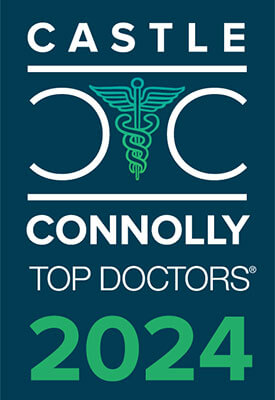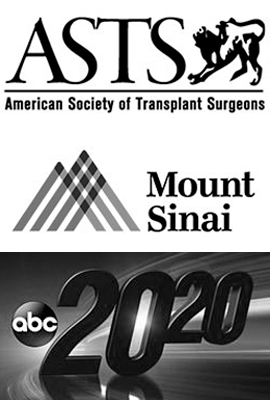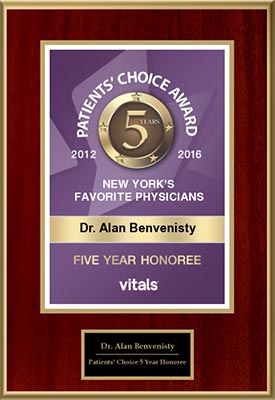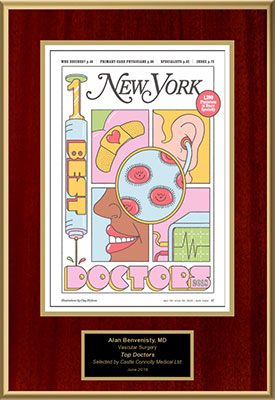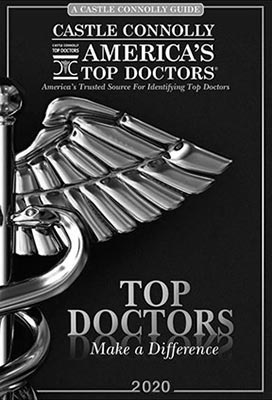Are You Experiencing Symptoms of Venous Insufficiency?

Venous insufficiency is a common vascular condition that affects the veins’ ability to efficiently return blood to the heart. When veins become weakened or damaged, blood can pool in the legs, leading to uncomfortable symptoms and potential complications. While this condition is often dismissed as minor discomfort, untreated venous insufficiency can significantly impact your quality of life. If you are experiencing symptoms, seeking care from a board-certified vascular surgeon like Dr. Alan Benvenisty, MD, in NYC can help prevent progression and provide effective treatment options.
What is Venous Insufficiency?
Venous insufficiency occurs when the valves in the veins—responsible for keeping blood flowing toward the heart—become damaged or weakened. This results in poor circulation and blood pooling in the lower extremities, leading to symptoms that range from mild discomfort to severe pain and swelling. Many people with venous insufficiency experience symptoms that worsen over time. The most common signs include:
- Swelling in the legs or ankles – A heavy, swollen feeling in the lower legs, especially after long periods of standing or sitting.
- Varicose veins – Enlarged, twisted, or bulging veins that are often visible just beneath the skin.
- Leg pain, aching, or cramping – A dull or throbbing sensation that worsens throughout the day.
- Skin changes – Discoloration, itching, or thickened skin around the ankles and lower legs.
- Ulcers or slow-healing wounds – In severe cases, venous insufficiency can lead to painful leg ulcers that take a long time to heal.
- Restless legs or discomfort at night – A common complaint among those with poor circulation.
What Causes Venous Insufficiency?
Venous insufficiency can develop due to various factors that weaken or damage vein valves over time. Some of the most common causes include:
- Aging – As we get older, vein valves naturally weaken, making it harder for blood to flow properly.
- Prolonged Sitting or Standing – Jobs that require long hours on your feet or extended periods of sitting can contribute to vein damage.
- Obesity – Excess weight puts added pressure on veins, leading to circulation problems.
- Pregnancy – Increased blood volume and hormonal changes can put stress on veins, sometimes leading to chronic venous issues.
- Family History – Genetics can play a significant role in venous health.
- Previous Blood Clots (Deep Vein Thrombosis) – Clots can damage veins and increase the risk of venous insufficiency.
When to Seek Treatment
If you are experiencing symptoms of venous insufficiency, seeking care early can prevent complications such as venous ulcers, infections, and chronic pain. Treatment from an experienced vascular surgeon like Dr. Alan Benvenisty, MD, can help manage the condition and restore proper circulation.
Dr. Benvenisty offers a range of minimally invasive and surgical treatments to improve venous function and alleviate symptoms. Depending on the severity of your condition, options may include compression therapy, sclerotherapy, endovenous ablation, or vein bypass surgery.
Schedule a Consultation with Dr. Alan Benvenisty
If you are suffering from leg pain, swelling, or other signs of venous insufficiency, don’t wait for symptoms to worsen. Dr. Alan Benvenisty, MD, in NYC, specializes in diagnosing and treating vascular conditions to help patients maintain healthy circulation. Schedule a consultation today to discuss your treatment options and take the first step toward relief.
Posted on behalf of
440 West 114th St, Second Floor
New York, NY 10025
Phone: (212) 523-4706
Monday & Friday 9:00 AM – 5:00 PM


